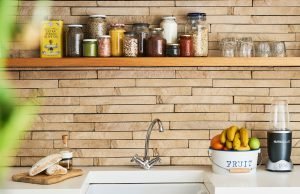
In This Post
- 5 easy habits you can add to your routine to help you achieve more
- Tips and guidance on using minimalism to create a better life
By now you have probably heard a lot about the importance of habits and how they can propel you to success, a happier life and a more peaceful existence. Applying healthy habits to different areas of your life is key to finding balance and building sustainable progress towards your self development goals. Applying minimalist habits is just another way to guarantee yourself a greater sense of peace and freedom from stress.
Habit 1: Use Routines to Minimise Mental Fatigue
The importance of routines (the collection of several habits performed together) cannot be overemphasised. They are a great way to help you consistently repeat behaviours that are beneficial for your self development and minimalism journey. By creating a set of habits as a routine, you allow yourself to complete behaviours automatically. This allows you to avoid using your mental energy – a resource that is considerably finite.
Creating a life where beneficial behaviours are part of your day-to-day routine allows you to get their benefits on a small but consistent basis. Behaviours like meditating or decluttering are great things to do regularly. Doing something little and often has a much greater impact in the long run compared to large and infrequent actions. For example, consider creating the habit of tidying your living space for 10 minutes per day. Rather than waiting a few weeks to attempt to clean your whole apartment. I know which one would feel easier for me!
Habit 2: Create a Structure
Similar to building up a set of habits to create a routine, adding additional levels of structure in your life is another way you can use minimalism to propel you to success. Having ‘structure’ or ‘rules’ may at first feel like a harsh, limiting thing to do to yourself. But, with structure can come a good deal of freedom. For example, some rules you could apply to help you on your minimalism journey could be the ‘one in one out’ rule. This states that for every new item you buy (e.g., clothes), you need to donate, sell or let go of an existing item. This allows you to keep your collection of belongings to a predefined number.
Although consumption, in general, is to be minimised, this can help at least prevent excessive consumption leading to more clutter. This rule adds some structure to your life while freeing you from the mental stress that originates from being overwhelmed by physical clutter.
Other examples of structure for minimalism that have beneficial impacts on your life can be things like having nothing, or at least limiting, the physical items on surfaces in your home – this rule frees you from the stress of an overwhelming, cluttered physical environment, and also makes it easier to clean!
A second example could be having an agreement with your friends to not exchange physical gifts for anniversaries, birthdays or celebrations. Instead, you could agree to share a meaningful experience instead. The purpose of these ‘rules’ is to add a framework to make minimalist behaviours more natural. This keeps you in line with your behavioural, consumption and lifestyle goals.

Habit 3: Focus On Being a Mindful Minimalist
Another powerful habit to consider adding to your life is creating the habit of being mindful. Especially if you are looking to grow your minimalist mindset. Actively pursuing the mental state of mindfulness, intentionality and conscious decision-making makes it easier to naturally exist in that state. Our brains are flexible, so the more you practice thinking in a certain way, the more inclined your brain is to naturally think that way.
By actively practising this type of mindset, you allow yourself the opportunity to naturally fall into it in your day-to-day life. This has compounding effects down the line from the frequent and small decisions you make on a regular basis. Being mindful while making purchases, being intentional when you decide how to use your free time and actively deciding things consciously is more likely to lead you to a purposeful life. Living in alignment with minimalist practices is easiest if you can maintain a corresponding mindset.
Habit 4: Practise Sustainability
Living a minimalist lifestyle is inherently a more sustainable way to live. Adding more habits and practises that are focused on sustainability will also help you be more minimal. Making better decisions for yourself and for the environment. Focusing on reusing, recycling, reducing and repairing where you can will help you to consume less. And when you do consume things, to consume in a meaningful way. There are so many things you can do to live more sustainably, but below are just a few quick examples:
- Travel by foot, bike or public transport instead of car where you can
- Eat less meat and dairy products
- Invest in making your home as energy efficient as possible
- Vote, participate in politics and your community as an active citizen, focusing on policies that are pro-environment
- Rent rather than buy, share and borrow things instead of buying, especially for things with limited use

Habit 5: Embrace What Is Left
Adopting minimalist habits will help you to live and behave in alignment with minimalism and all the benefits that it can bring. There are lots of things you can add to your life, routines, habits, behaviours, etc. But, it is also important to remember to take the time to embrace what is left.
Whether that be the meaningful, valued possessions that survived being decluttered. Or the people in your life who you love and enjoy spending time with. Embracing what you do have is important. Making it a habit to be grateful and actively practising gratitude is an important part of developing your minimalist mindset and lifestyle.
To Put it Minimally
- Using minimalism to inspire your habits helps you stay focused on truly impactful changes
- Use routines to reduce your cognitive load, and keep you focused on what matters
- Create structure in your life to keep you on the right track, even when you’re feeling unmotivated
- Practise mindfulness and making sustainable choices in your life to reduce your impact on the world around you, and to feel calmer in your day to day life
- Be grateful and actively practise gratitude for the things you do have in your life




